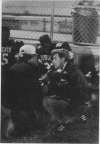Abstract
Although catastrophic head and neck injuries in football occur infrequently, their occurrence is almost always followed by litigation. The athletic trainer has to be sure he/she has adequate liability insurance to cover the costs of a defense and a possible judgment. General claims filed against athletic staffs usually deal with instruction, equipment, matching of participants, supervision, and/or postinjury care. The defenses to these claims include: statutory immunity, assumption of risk, releases or waivers, and the reckless disregard standard. The athletic trainer plays a key role in head and neck injury prevention and care, and must be aware of litigation possibilities, along with methods of risk management. We present recommendations aimed at minimizing the risk of head and neck injuries and the risk of liability. The areas covered are: preparing for head and neck lawsuits, preventing head and neck injuries, and postcatastrophic injury care. We base these recommendations on principles that the athletic trainer can easily apply to other areas, broadening the risk management concept presented.
Full text
PDF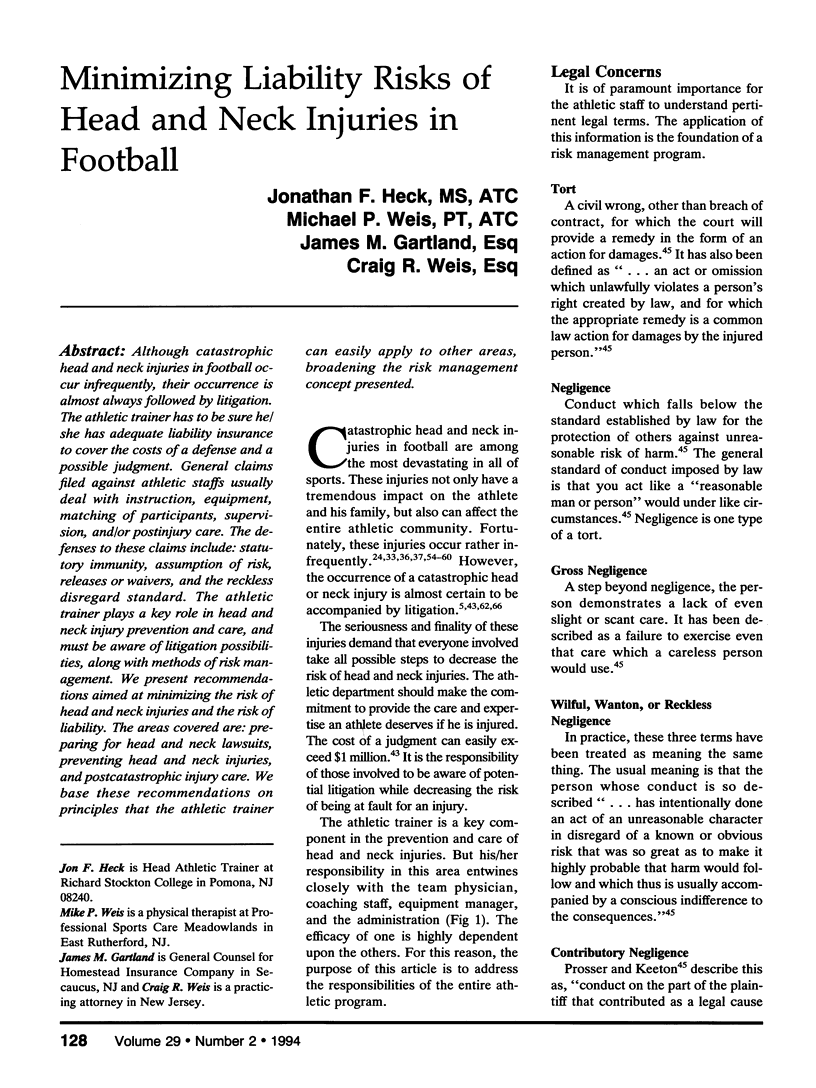
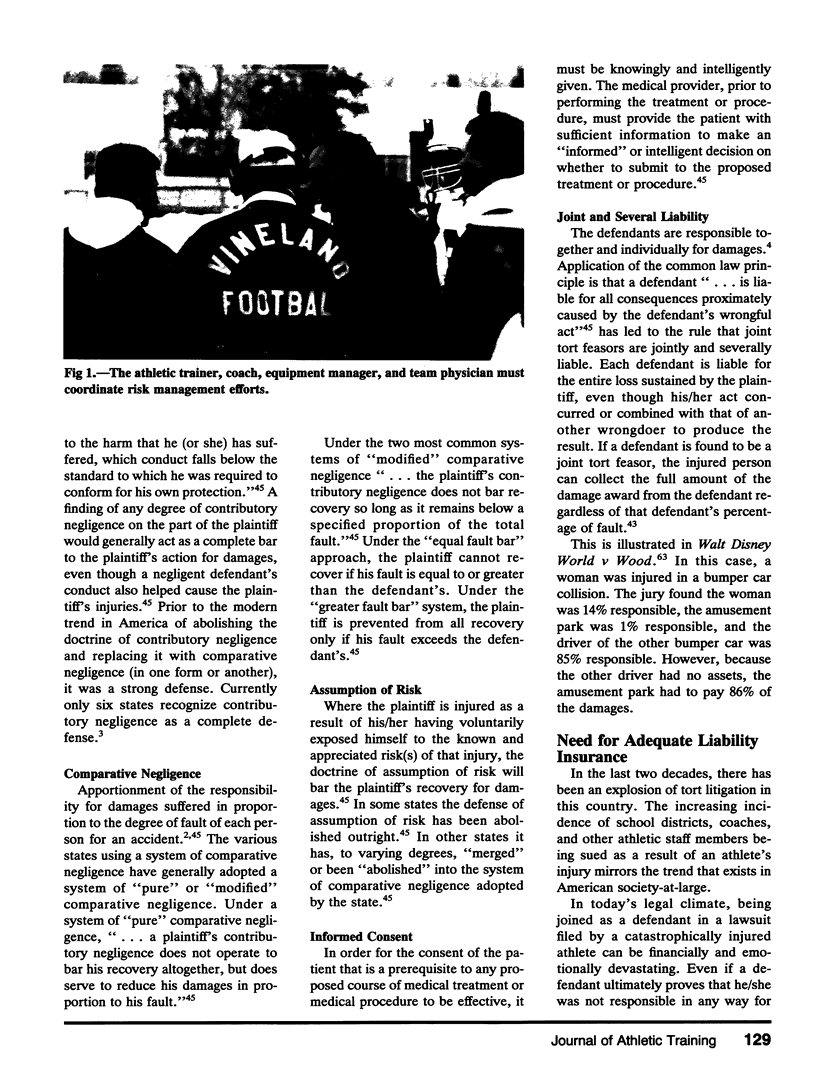
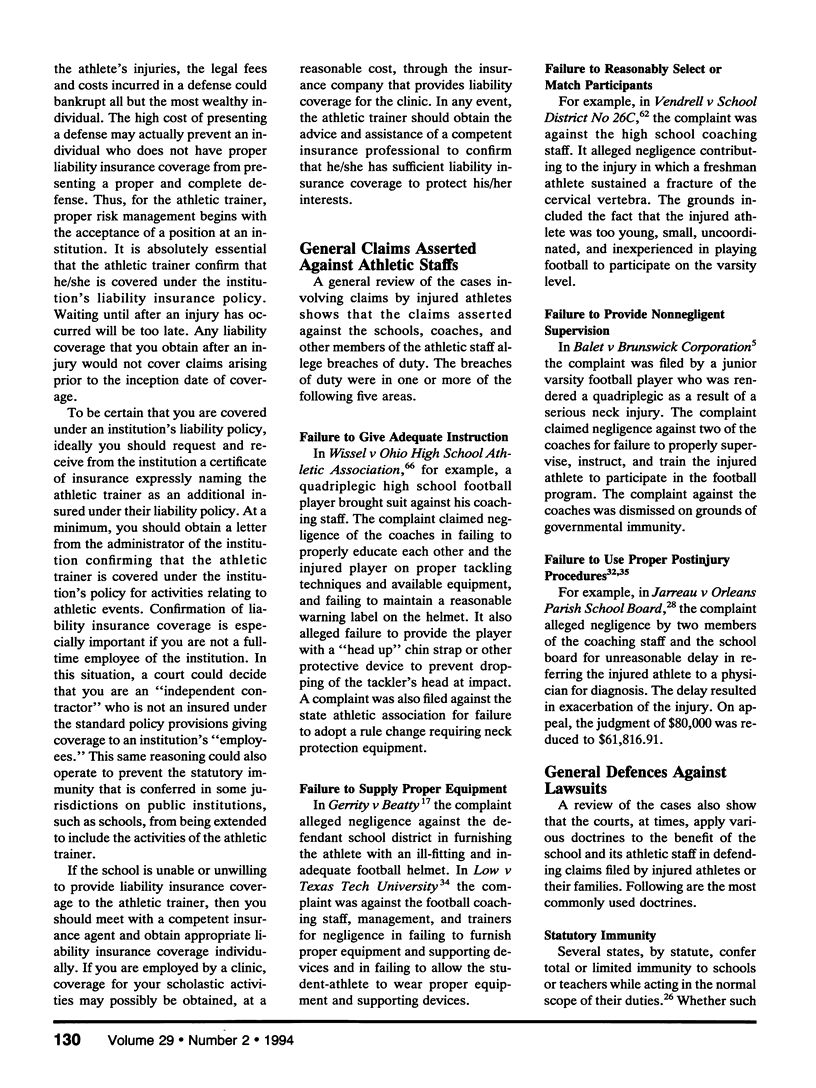
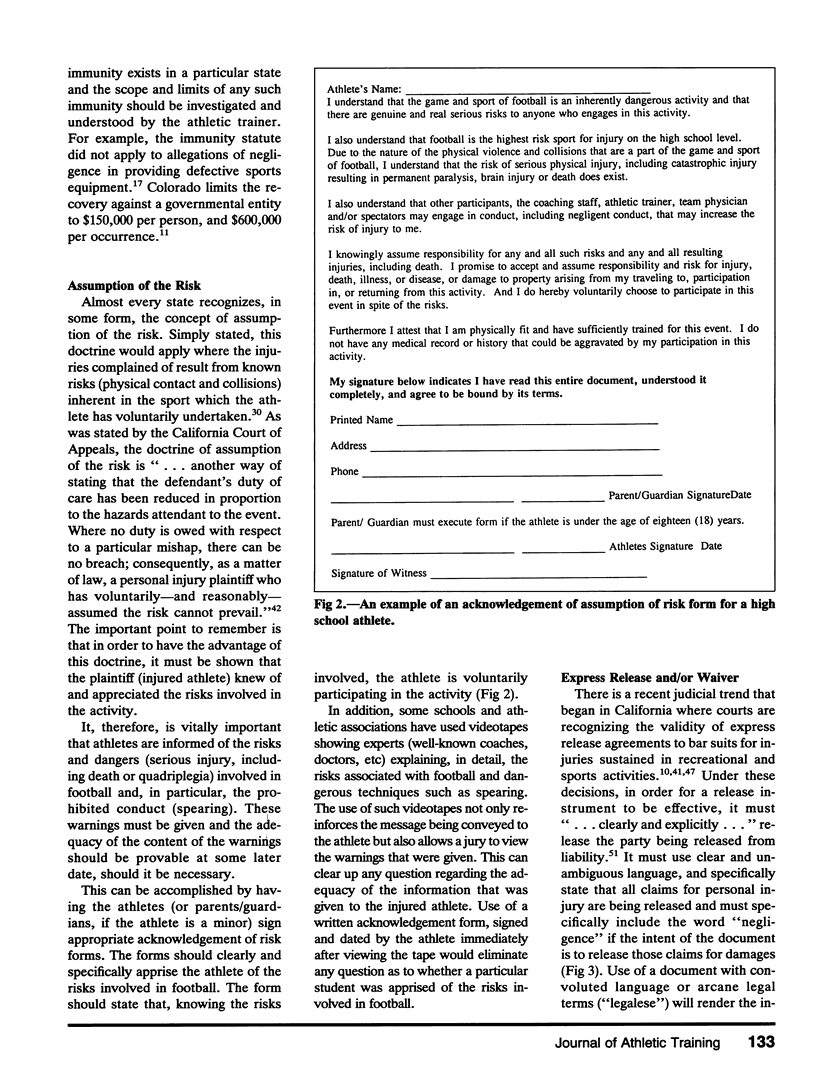
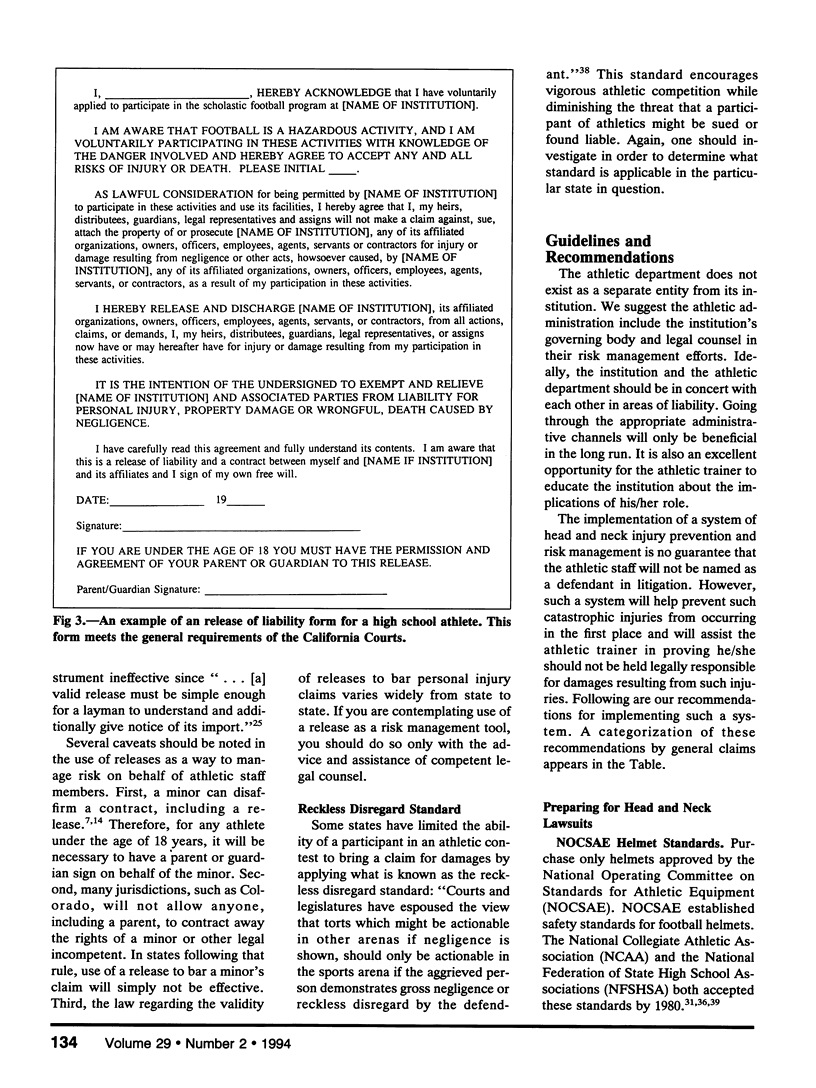
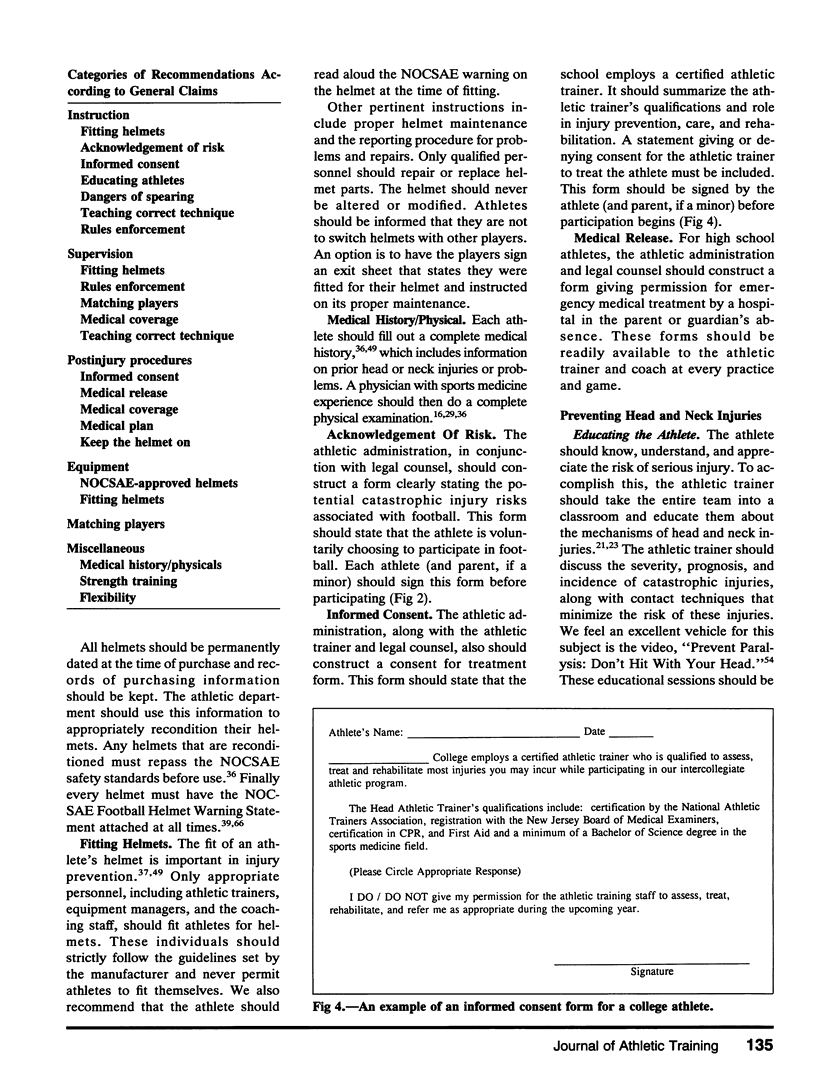
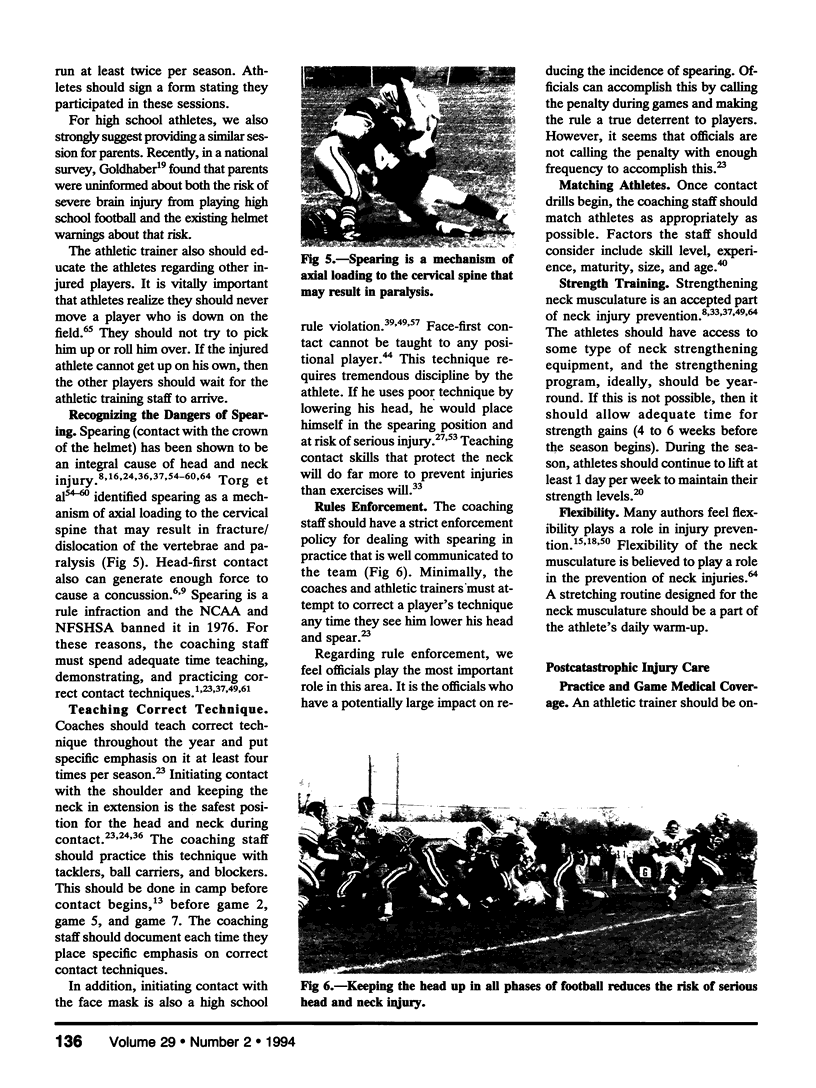
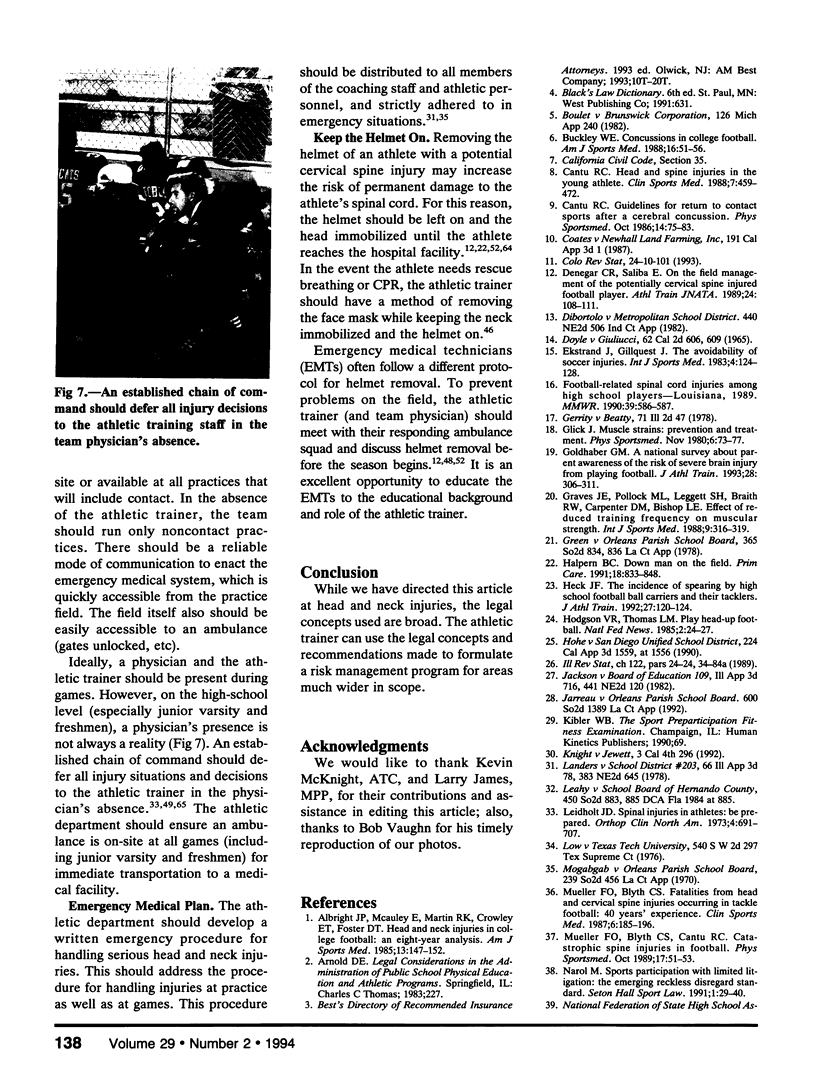
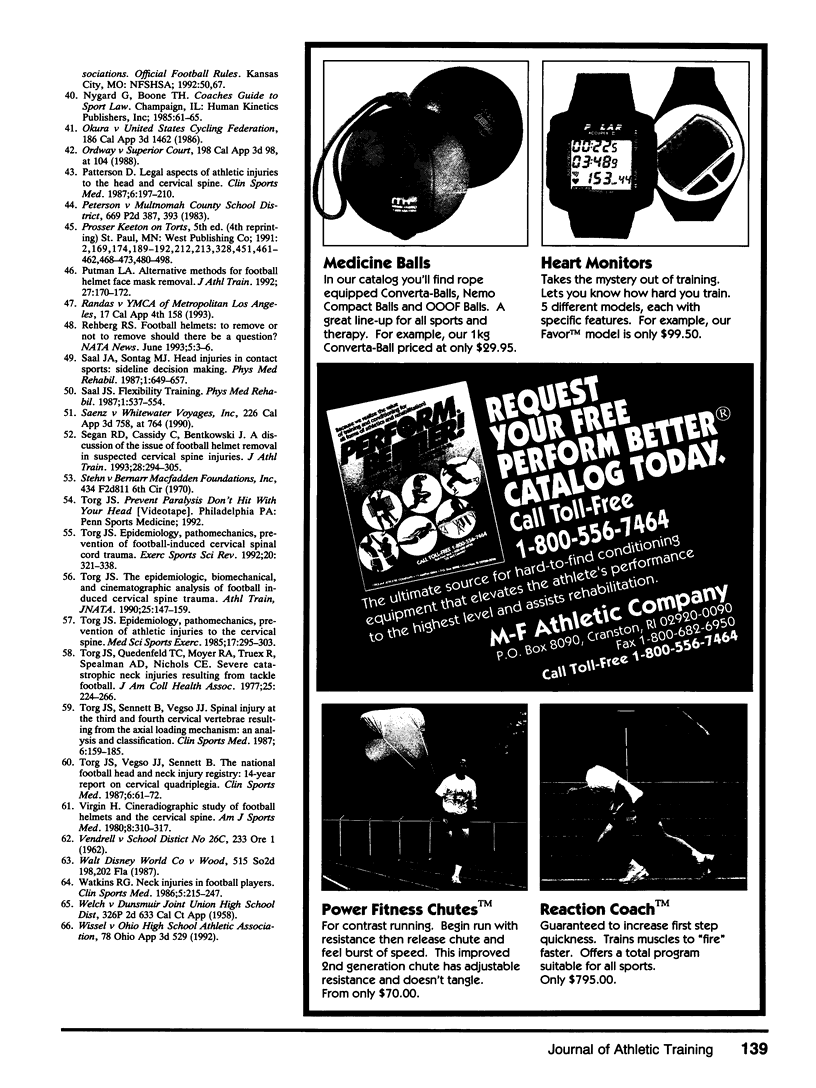
Images in this article
Selected References
These references are in PubMed. This may not be the complete list of references from this article.
- Albright J. P., McAuley E., Martin R. K., Crowley E. T., Foster D. T. Head and neck injuries in college football: an eight-year analysis. Am J Sports Med. 1985 May-Jun;13(3):147–152. doi: 10.1177/036354658501300301. [DOI] [PubMed] [Google Scholar]
- Buckley W. E. Concussions in college football. A multivariate analysis. Am J Sports Med. 1988 Jan-Feb;16(1):51–56. doi: 10.1177/036354658801600109. [DOI] [PubMed] [Google Scholar]
- Cantu R. C. Head and spine injuries in the young athlete. Clin Sports Med. 1988 Jul;7(3):459–472. [PubMed] [Google Scholar]
- Ekstrand J., Gillquist J. The avoidability of soccer injuries. Int J Sports Med. 1983 May;4(2):124–128. doi: 10.1055/s-2008-1026025. [DOI] [PubMed] [Google Scholar]
- Goldhaber G. M. A national survey about parent awareness of the risk of severe brain injury from playing football. J Athl Train. 1993 Winter;28(4):306–311. [PMC free article] [PubMed] [Google Scholar]
- Graves J. E., Pollock M. L., Leggett S. H., Braith R. W., Carpenter D. M., Bishop L. E. Effect of reduced training frequency on muscular strength. Int J Sports Med. 1988 Oct;9(5):316–319. doi: 10.1055/s-2007-1025031. [DOI] [PubMed] [Google Scholar]
- Halpern B. C. Down man on the field. Prim Care. 1991 Dec;18(4):833–849. [PubMed] [Google Scholar]
- Heck J. F. The incidence of spearing by high school football ball carriers and their tacklers. J Athl Train. 1992;27(2):120–124. [PMC free article] [PubMed] [Google Scholar]
- Leidholt J. D. Spinal injuries in athletes: be prepared. Orthop Clin North Am. 1973 Jul;4(3):691–707. [PubMed] [Google Scholar]
- Mueller F. O., Blyth C. S. Fatalities from head and cervical spine injuries occurring in tackle football: 40 years' experience. Clin Sports Med. 1987 Jan;6(1):185–196. [PubMed] [Google Scholar]
- Patterson D. Legal aspects of athletic injuries to the head and cervical spine. Clin Sports Med. 1987 Jan;6(1):197–210. [PubMed] [Google Scholar]
- Putman L. A. Alternative methods for football helmet face mask removal. J Athl Train. 1992;27(2):170–172. [PMC free article] [PubMed] [Google Scholar]
- Segan R. D., Cassidy C., Bentkowski J. A discussion of the issue of football helmet removal in suspected cervical spine injuries. J Athl Train. 1993 Winter;28(4):294–305. [PMC free article] [PubMed] [Google Scholar]
- Torg J. S. Epidemiology, pathomechanics, and prevention of athletic injuries to the cervical spine. Med Sci Sports Exerc. 1985 Jun;17(3):295–303. [PubMed] [Google Scholar]
- Torg J. S. Epidemiology, pathomechanics, and prevention of football-induced cervical spinal cord trauma. Exerc Sport Sci Rev. 1992;20:321–338. [PubMed] [Google Scholar]
- Torg J. S., Quedenfeld T. C., Moyer R. A., Truex R., Spealman A. D., Nichols C. E. Severe and catastrophic neck injuries resulting from tackle football. J Am Coll Health Assoc. 1977 Apr;25(4):224–226. [PubMed] [Google Scholar]
- Torg J. S., Sennett B., Vegso J. J. Spinal injury at the level of the third and fourth cervical vertebrae resulting from the axial loading mechanism: an analysis and classification. Clin Sports Med. 1987 Jan;6(1):159–183. [PubMed] [Google Scholar]
- Torg J. S., Vegso J. J., Sennett B. The National Football Head and Neck Injury Registry: 14-year report on cervical quadriplegia (1971-1984). Clin Sports Med. 1987 Jan;6(1):61–72. [PubMed] [Google Scholar]
- Virgin H. Cineradiographic study of football helmets and the cervical spine. Am J Sports Med. 1980 Sep-Oct;8(5):310–317. doi: 10.1177/036354658000800503. [DOI] [PubMed] [Google Scholar]
- Watkins R. G. Neck injuries in football players. Clin Sports Med. 1986 Apr;5(2):215–246. [PubMed] [Google Scholar]






